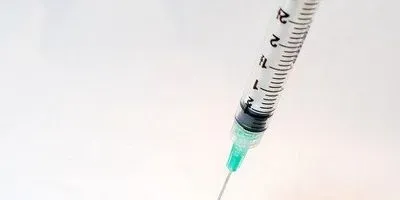 FLICKR, NIAIDGetting a seasonal flu shot can leave healthy adults with the common side effects of feeling achy or feverish. Now, researchers have identified a gene-expression pattern in circulating immune cells that could help predict which individuals are more likely to suffer these adverse effects following vaccination. This molecular signature was also correlated with a person’s chances of having autoreactive antibodies, according to the results published today (January 4) in Nature Immunology.
FLICKR, NIAIDGetting a seasonal flu shot can leave healthy adults with the common side effects of feeling achy or feverish. Now, researchers have identified a gene-expression pattern in circulating immune cells that could help predict which individuals are more likely to suffer these adverse effects following vaccination. This molecular signature was also correlated with a person’s chances of having autoreactive antibodies, according to the results published today (January 4) in Nature Immunology.
“Man flu,” a disparaging term for one’s exaggeration of flu-like symptoms, “is partly a joke and it’s partly real. Our study shows that there are very good reasons for people feeling unwell after a vaccination,” said study coauthor Adrian Hayday of King’s College London. “The gene signature in the peripheral blood . . . is not a smoking gun at this point, but it’s a strong association and quite compelling.”
Previous studies have identified reasons why some people fail to respond to flu vaccines while others do, but few have analyzed the molecular correlates of adverse responses.
To identify this unique gene-expression pattern, Hayday and his colleagues began by observing changes in the immune system in response to a vaccine against the H1N1 influenza strain ...


















